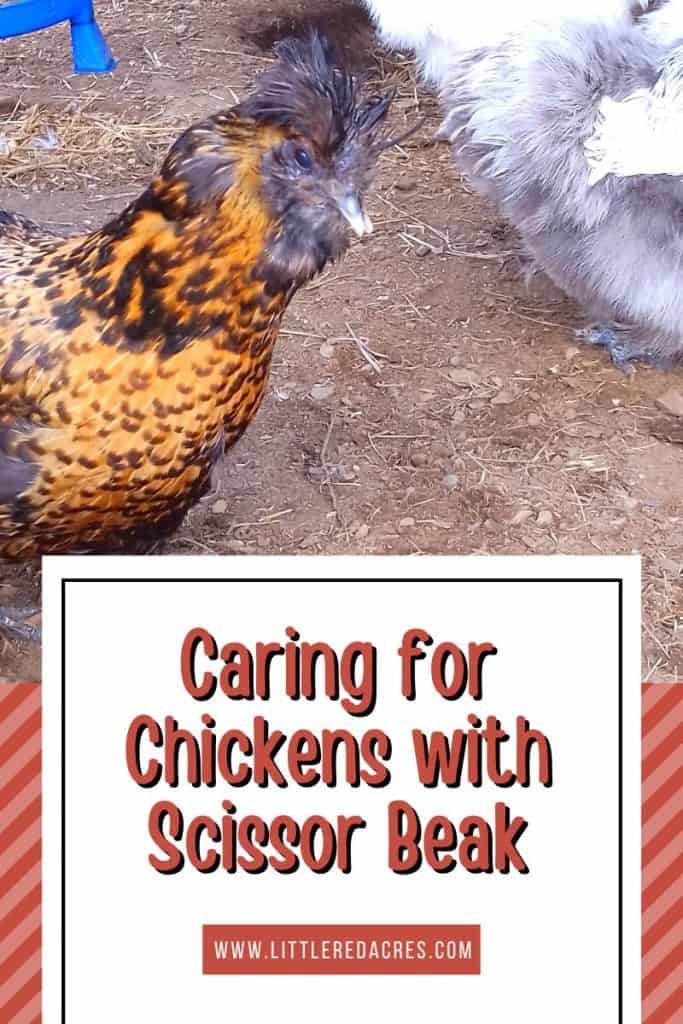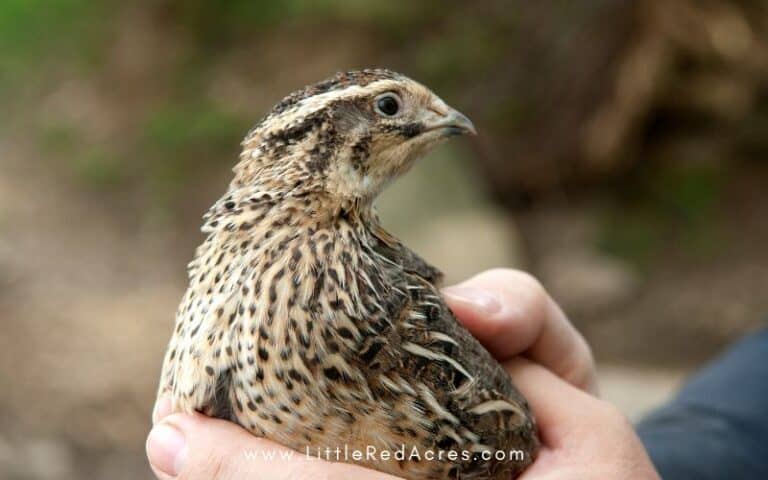Caring for Chickens with Scissor Beak
Inside: Learn how to care for chickens with scissor beak – essential tips for their health and well-being, and a great life in your flock.
A scissor beak, also known as a cross beak, is a condition in chickens where the upper and lower beaks do not align properly. This can cause difficulty in eating and drinking, as well as lead to other health issues. If you have chickens with scissor beak, there are several steps you can take to ensure their health and well-being.

This post may contain affiliate links, see my disclosure policy for more information.
Caring for Chickens with Scissor Beak
We do have a chicken with a scissor beak, she is a beautiful satin silkie. She lives a normal chicken life with the rest of the silkie flock.
Get updates & freebies delivered to your inbox!
Chickens with scissor beaks may have difficulty eating, so it's important to provide them with feed that they can eat. This can include lay pellet or lay mash.
You can also add water to the chicken's feed to make it easier for them to swallow. Our silkies, including the one with a scissor beak, had no interest in eating soaked feed, so we switched them back to regular, dry, lay pellets.
Monitor the Chicken's Weight
Chickens with scissor beaks may have difficulty eating enough to maintain a healthy weight. It's important to monitor the chicken's weight regularly and adjust its diet as necessary.
Provide A Comfortable and Safe Living Space
Chickens with scissor beaks may have difficulty competing for food and water with other birds.
Provide a comfortable and safe living space for your chicken, where it can access food and water easily without being bullied by other birds. You may also want to provide additional feeders and waterers to make sure your bird has access at all times without bullying.

Consider Trimming the Beak
It may be necessary to trim the chicken's beak to help it eat and drink more easily. You need to be very careful. If you are unsure about trimming it, don't do it. Trimming the beak too much can cause pain and further health issues.
The beak of a chicken is a lot like a dog's toenail. There is a quick that you do not want to cut.
I use a pair of dog nail clippers and give the beak a little snip. Small snips to be careful not to hit the quick. It's best if your chicken is calm and not fighting to get away.
Caring for a chicken with a scissor beak requires specialized care and attention to ensure its health and well-being. With proper care, your chicken can live a healthy and happy life. A scissor beak doesn't have to be a death sentence.
Frequently Asked Questions About Chickens with Scissor Beak
Can scissor beak chickens survive? Scissor-beak varies in severity, but most chicks can eat and drink independently. Crossed beak need not be an automatic death sentence as believed by some. Most cross-beaked chicks adapt and thrive, leading long, happy lives.
Do I need to trim my chickens beak? With beaks, it's important to ensure that they're properly growing and wearing down. If their upper beak begins to grow much longer than their lower beak, you should trim or file it down. If the upper beak is allowed to grow too much, it can interfere with eating, pecking, and preening.

Want More?
Caring for Ailing Hens: Effective Home Remedies for Sick Chickens
What Causes Scissor Beak in Chickens






